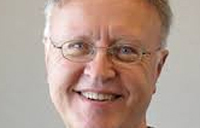
James Simeon, professor and director of the School of Public Policy and Administration in the Faculty of Liberal Arts & Professional Studies at York University, is the moderator of an expert panel presentation of the Special International Joint Public Seminar: Armed Conflict, Generalized Violence and Asylum Law.
A two-part public seminar featuring an international cohort of panellists, the first session was titled, “The ‘War Refugee’ and International Law: New Global Approaches” and was held on March 27. The second, “Regional Perspectives on the Consequences of Displacement: War, Generalized Violence, and Refugee Protection” will take place April 30 at the Institute of Advanced Legal Studies at the University of London and will be live streamed at 120E Stedman Lecture Hall at York University. The panel, which runs from 5 to 7pm in London, will be live streamed from 12 to 2pm at York University.
Panellists will address the question: How do regional asylum concepts and mechanisms emerge and adapt in response to the impact of refugee flows upon neighbouring and nearby countries within regions and how does this, in turn, influence and affect international refugee law and practice? The experts participating on the panel are: Professor Dawn Chatty, director, Refugee Studies Centre (RSC), Department of International Development, University of Oxford, UK; Professor Susan Akram, clinical professor of law, School of Law, and director, International Human Rights Clinic, Boston University, USA; Professor David James Cantor, director, Refugee Law Initiative (RLI), School of Advanced Study, University of London, UK; Ahmed Arbee, head, Africa Chapter (South), International Association of Refugee Law Judges; and Justice Isaac Lenaola, High Court of Kenya, Nairobi, and the United Nations Residual Special Court for Sierra Leone.
The live stream link for the panel is: http://msl.stream.yorku.ca/mediasite/Viewer?peid=d6efeedd-eb8c-428a-8a0c-ec01ce1daf2e.
Those interested in viewing the panel proceedings should copy and paste the link into their browser. All are also welcome to attend and watch the proceedings in person in 120E Stedman Lecture Hall at York University.


